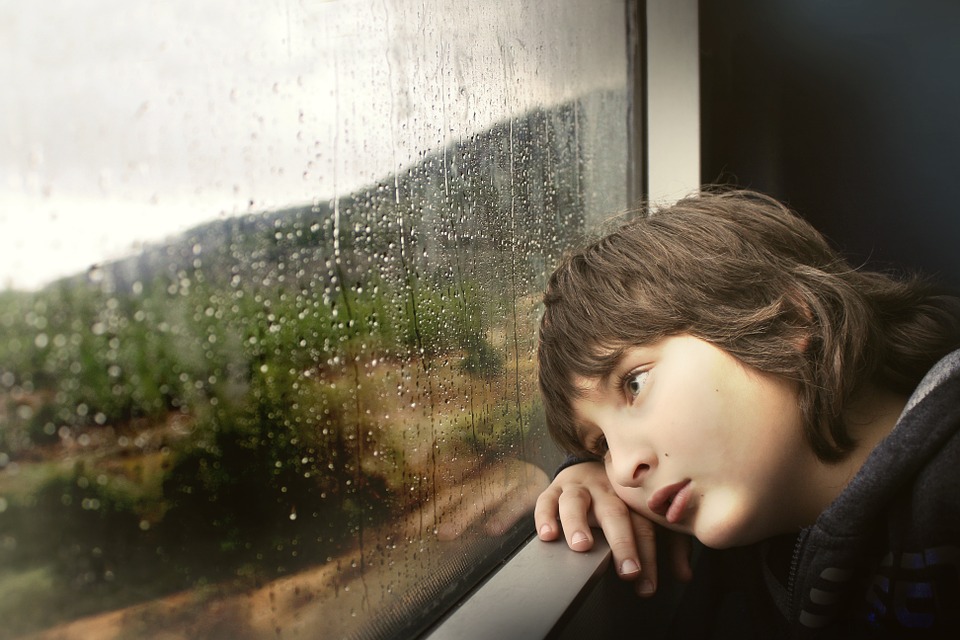Bored? Not Anymore
When you pay attention to boredom it gets unbelievably interesting. – Jon Kabat-Zinn
Recently, I’ve noticed a trend among the younger generation: fewer and fewer people have hobbies. But when you consider the time we live in, it makes sense.

So, with the overwhelming opportunities of our technological age, have we eradicated boredom?
Not really.
In adult populations, about 65% of people will experience boredom on any given day. But when looking at youth populations more specifically (from a study in 2007), about 95% of respondents report some daily experience of boredom.
But what exactly is boredom?
According to one definition, boredom is the “aversive experience of wanting, but being unable to engage in a satisfying activity” (van Tilburg & Igou, 2017; p., 310). Often, boredom is associated with a particular posture: a collapsed upper body, a downward tilted head, and limited overall movement. But importantly, boredom is almost always negative.
To quote one early social psychologist, Erich Fromm:
“I am convinced that boredom is one of the greatest tortures. If I were to imagine Hell, it would be the place where you were continually bored” (van Tilburg & Igou, 2017; p.309)
But boredom isn’t the only negative emotion out there, so why do people so uniformly categorize boredom as an unpleasant experience?

However, there is a specific quality associated with boredom that distinguishes it from many other negative emotions: a lack of meaning.
Having meaning in one’s life (i.e., a purpose) is a big contributor to overall wellbeing. However, when we’re bored, we feel like life is substantially less meaningful. In fact, research has shown that boredom prompts people to engage in more nostalgic thinking as well as taking more extreme political stances—both of which have been shown to elevate one’s purpose in life.
But beyond a sense of meaninglessness, boredom is also associated with a lower state of physiological arousal (i.e., physical activation). Typically, having low arousal like this is unpleasant (think of being drowsy or tired when trying to work). As such, boredom often promotes engaging in activities that increase one’s arousal, such as gambling or some new kind of task.
Because of this, boredom can actually motivate people to eat healthy foods!—assuming those healthy foods provide a relatively exciting alternative to one’s current offerings. (Interestingly, unhealthy foods are usually considered more “exciting,” which is one of the reasons we turn to junk food when we’re bored.)

1. Men (on average) are 33% more likely to experience boredom than women.
2. Young people (~25 years of age) are about 4x more likely to experience boredom than older people (~45 years of age and up).
3. Full-time employees are less likely to experience boredom than non-full time employees.
4. Although having a relationship partner results in less boredom, whether or not a person has kids seemed to have no effect.
Overall, however, boredom tended to peak for most people in the afternoon (between noon and 6:00pm)—which is why today’s post comes perfectly in that window. For where there’s boredom, there’s no better cure than some psychophilosophical curiosity.
Actively,
jdt
Everyday Psychology: There’s a classic saying that “idle hands are the Devil’s workshop” (i.e., if you’re bored, you’re more likely to do something “sinful.”) In light of today’s post, how does the research support or dispute this claim? How could boredom contribute to something like bullying? But how could it also contribute to something like volunteering?
Chin, A., Markey, A., Bhargava, S., Kassam, K. S., & Loewenstein, G. (2017). Bored in the USA: Experience sampling and boredom in everyday life. Emotion, 17(2), 359.
van Tilburg, W. A., & Igou, E. R. (2017). Boredom begs to differ: Differentiation from other negative emotions. Emotion, 17(2), 309.








boredom can also be a product of something that normally would be exciting by its nature–e.g. fishing the same lake 12 hours a day, day and day out, for months, for years, for decades.
Great point! Indeed, even the most exciting activities (e.g., skydiving) can become “boring” with enough repetition. As humans, we are evolutionarily programmed to explore and discover new things, for which, our biology rewards us with that feeling of “thrill” when doing something new. Thus, when an activity becomes really repetitive, we no longer get that burst of physiological arousal, which subsequently results in feelings of boredom (i.e., negative affect that will in turn hope to motivate us to get back to exploring)
This may be tacky, or maybe just hard for some people to hear, but I’m pretty confident that boredom is—the number one reason—why the worldwide porn industry is so successful in this day, and time. Sad really, when you think about it…
To be honest, I totally agree with you. I mean, when you consider that porn is just a freely available “drug” (in a neurochemical sense), considering it’s ease of access, why not turn to it if you have nothing better to do? Thank you for the good insight!
Good one Jake. I can relate to it!!
Thanks, Patty! Paradoxically, this was an interesting topic to research and learn more about